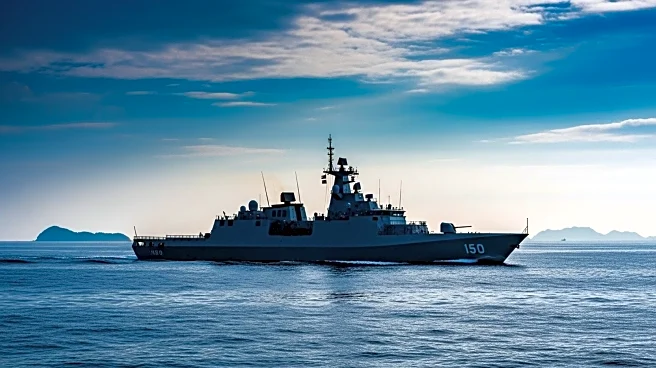What's Happening?
China's Navy has announced the completion of a routine patrol in the South China Sea, a move that has drawn criticism from the Philippines. The patrol follows joint naval exercises conducted by the Philippines with Australia and Canada, which included anti-submarine warfare and logistics operations. The Philippines has accused China of undermining regional peace and stability, while China maintains its sovereignty claims over the majority of the South China Sea. The situation highlights ongoing tensions in the region, with both sides asserting their maritime rights.
Why It's Important?
The South China Sea is a critical maritime region with significant geopolitical and economic implications. China's assertive actions in the area have raised concerns among neighboring countries and global powers, as the region is a vital shipping route and rich in natural resources. The Philippines' collaboration with Australia and Canada underscores the international dimension of the dispute and the importance of maintaining a rules-based order. The ongoing tensions could impact regional security and international trade, with potential consequences for global markets and diplomatic relations.
What's Next?
The situation in the South China Sea is likely to remain tense, with potential for further diplomatic and military developments. Stakeholders, including the United States and other regional powers, may increase their involvement to ensure freedom of navigation and uphold international law. The Philippines and its allies may continue to conduct joint exercises to demonstrate their commitment to regional security. China's response to these activities will be closely watched, as it could influence future diplomatic engagements and security dynamics in the region.









